
Watermelon
This summer treat is sweet and refreshing, but it could be the sneaky cause of stomach bloat. Watermelon is high in fructose, a naturally occurring sugar that is often incompletely absorbed by our GI system, leading to gas. Experts estimate one in three people suffer from fructose malabsorption.
Are you experiencing stomach pains? Learn What to Eat for a Happy Belly.
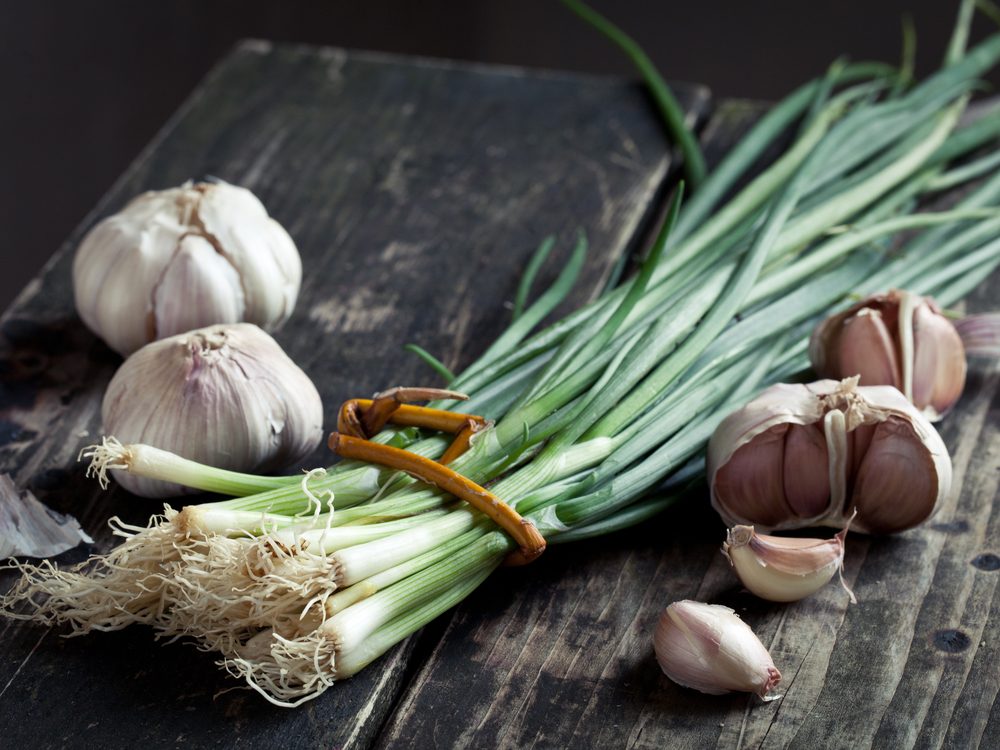
Scallions (and other aromatics)
Veggies with strong flavours, like scallions (just the white part), garlic, onions, shallots, and leeks (just the white bottom) are high in fructans, a type of fibre made up mostly of fructose molecules. Humans lack the enzymes to break down fructans, so no one is able to fully digest them, leading to gut problems like gas and bloating.
Check out these 10 Easy Ways to Improve Your Gut Health!
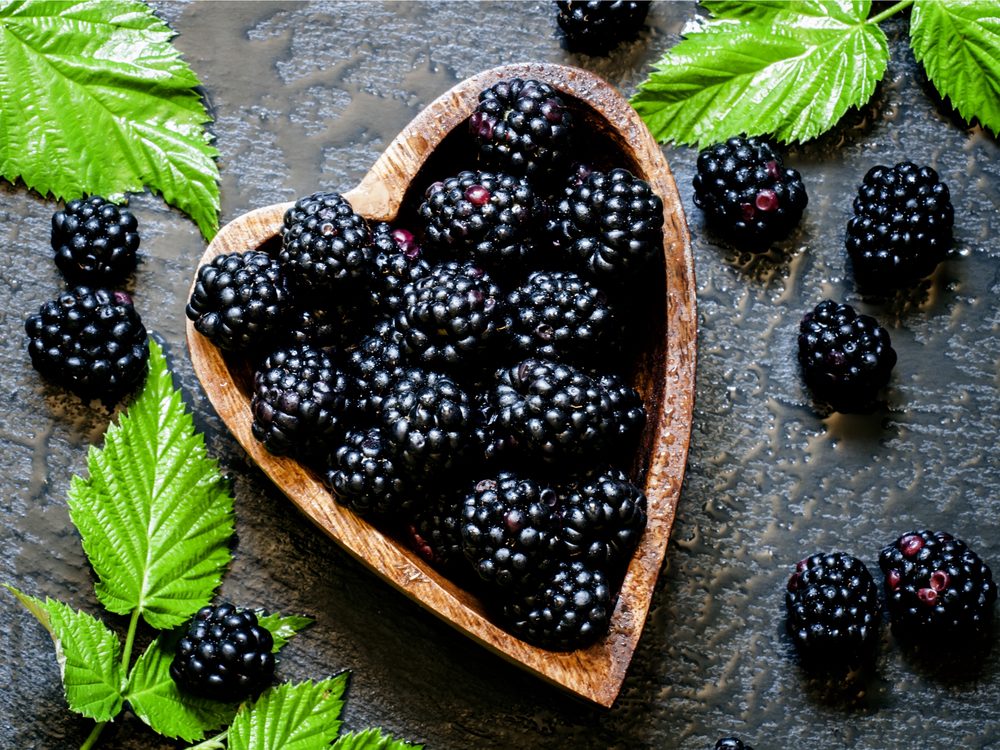
Blackberries
Blackberries are rich in antioxidants, but they’re also packed with polyols, the main component in sugar substitutes (which are often blamed for abdominal distress). Polyols tend to hang around our digestive system for a long time and usually aren’t completely absorbed, which can lead to bloating or excessive flatulence.
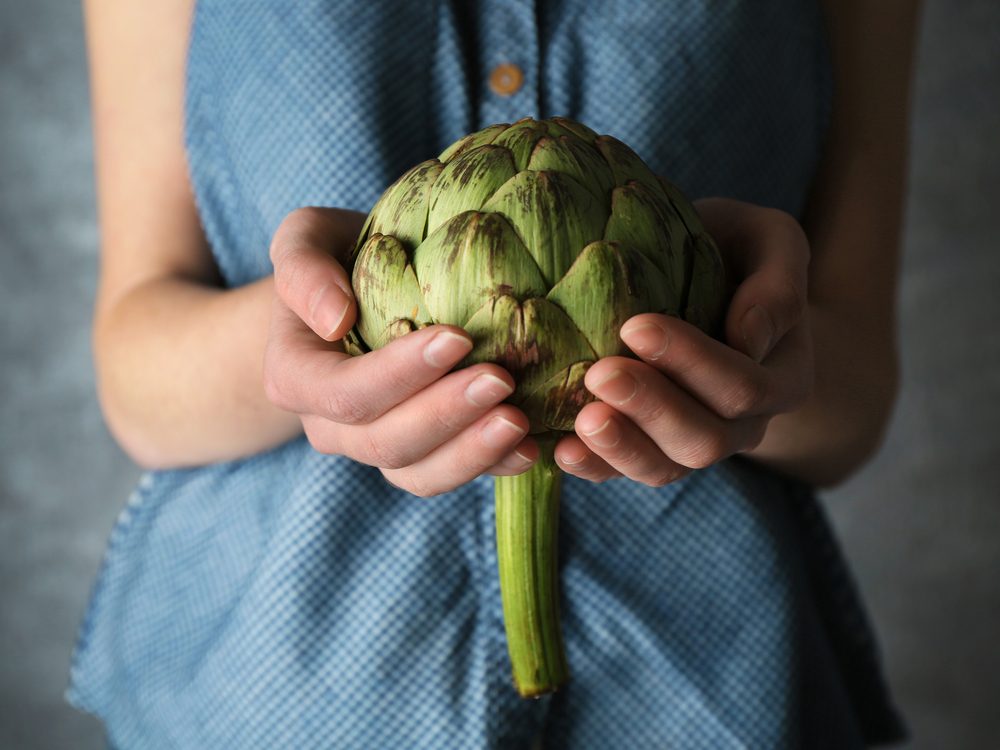
Artichokes
Beware of this veggie if you’re trying to battle bloat. It’s high in fructans, a fibre that is undigestible and can cause gas and bloating problems.
Does your belly ache? Check out 10 Stomach Pains You Should Never Ignore.
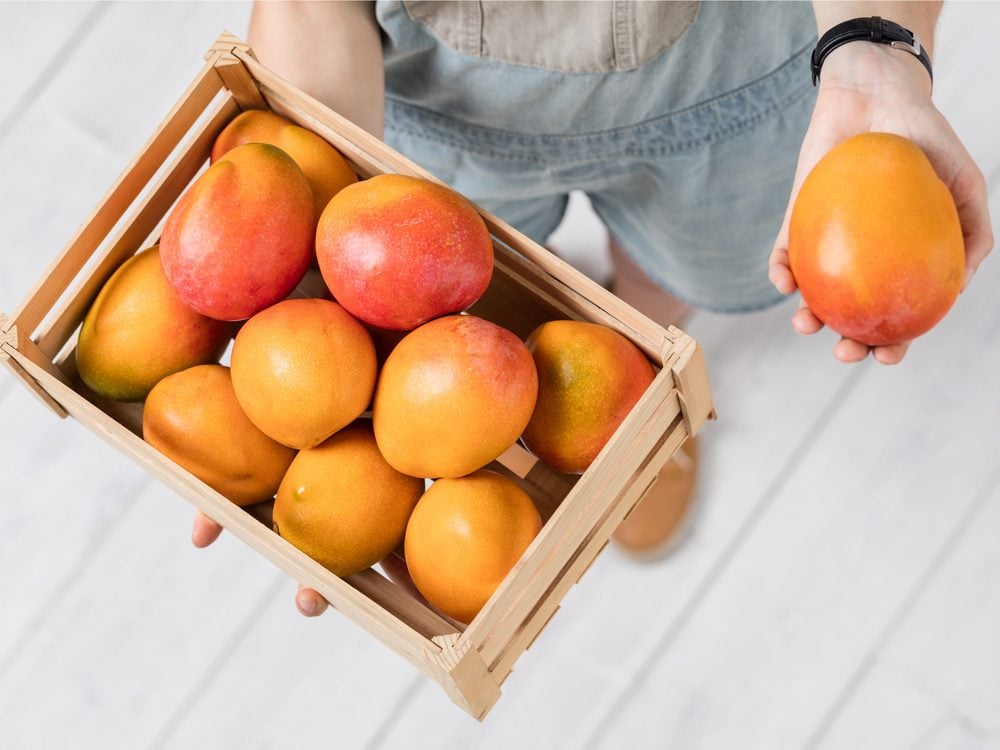
Mangoes
Mango is one fruit that contains more fructose than glucose, an imbalance that makes it harder for the fructose to be absorbed by our body. When this happens, bloating or other stomach problems can arise.
Mangoes aren’t all bad! Use this tropical fruit in this Revitalizing Face Mask recipe!
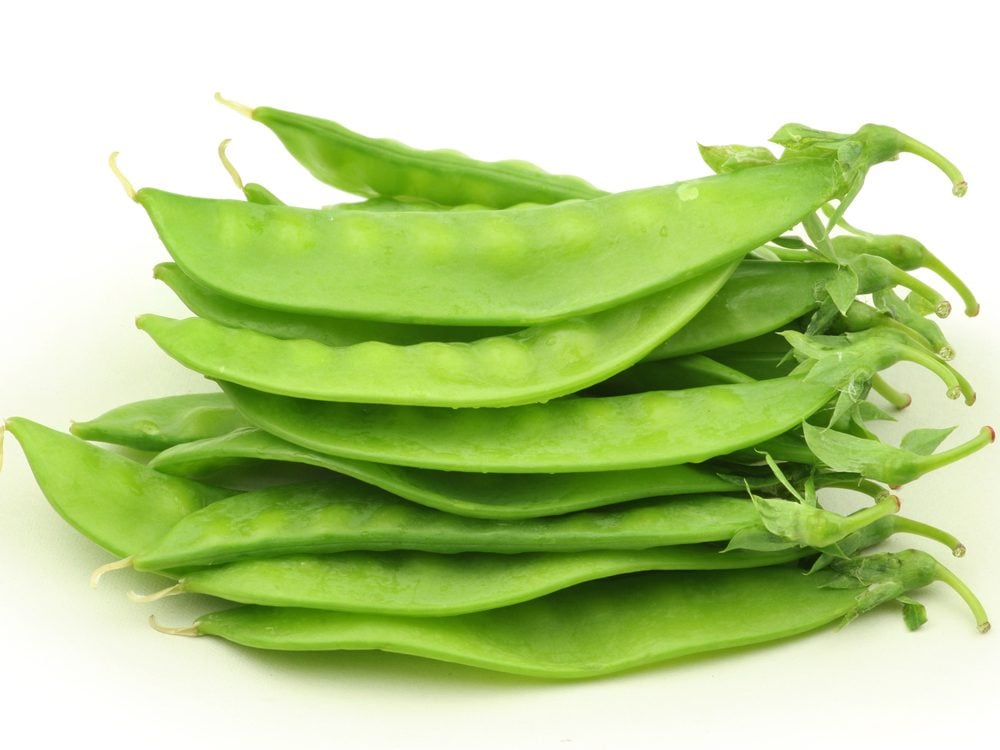
Snow peas
The snap of a snow pea is refreshing, but it can leave your belly feeling anything but. Snow peas contain galacto-oligosaccharides (GOS), a chain of sugars that are hard to digest and end up feeding gut bacteria, a cause of bloating. Snow peas also contain fructans and are high in polyols, which are often only partially absorbed by the body, another cause of stomach problems.
We’re counting down 4 of the Best Natural Digestive Supplements!
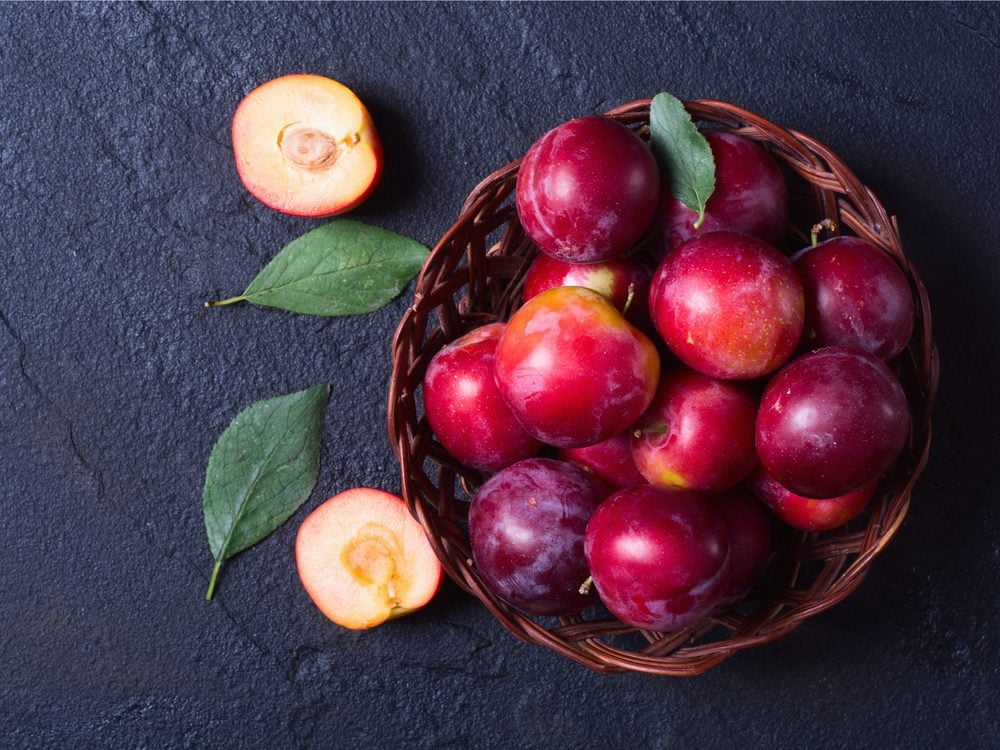
Plums
Plums are packed with polyols, often called sugar alcohols because of their structure (they look like both sugar and alcohol) and because they’re fermented by gut bacteria, which leads to stomach problems like bloating.
Check out our best tips for Cutting Down on Sugar.
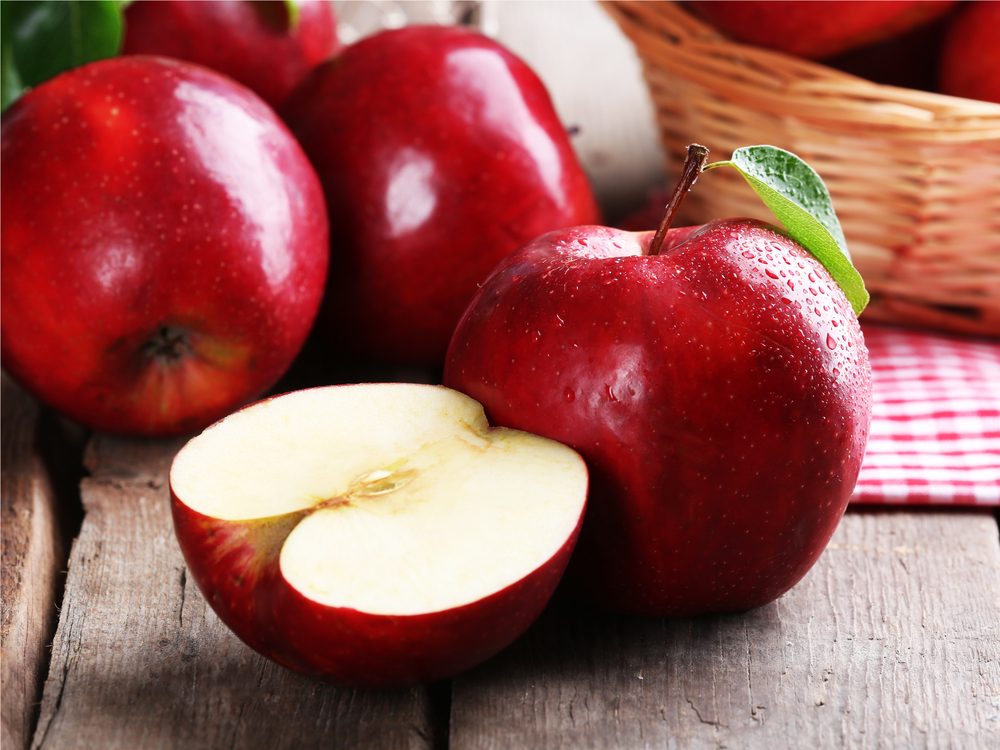
Apples
Apples can be a trigger for those who suffer from fructose malabsorption, which occurs when the natural sugar is unable to be absorbed by the body. Fructose malabsorption leads to bloating, diarrhea, and other digestive issues.